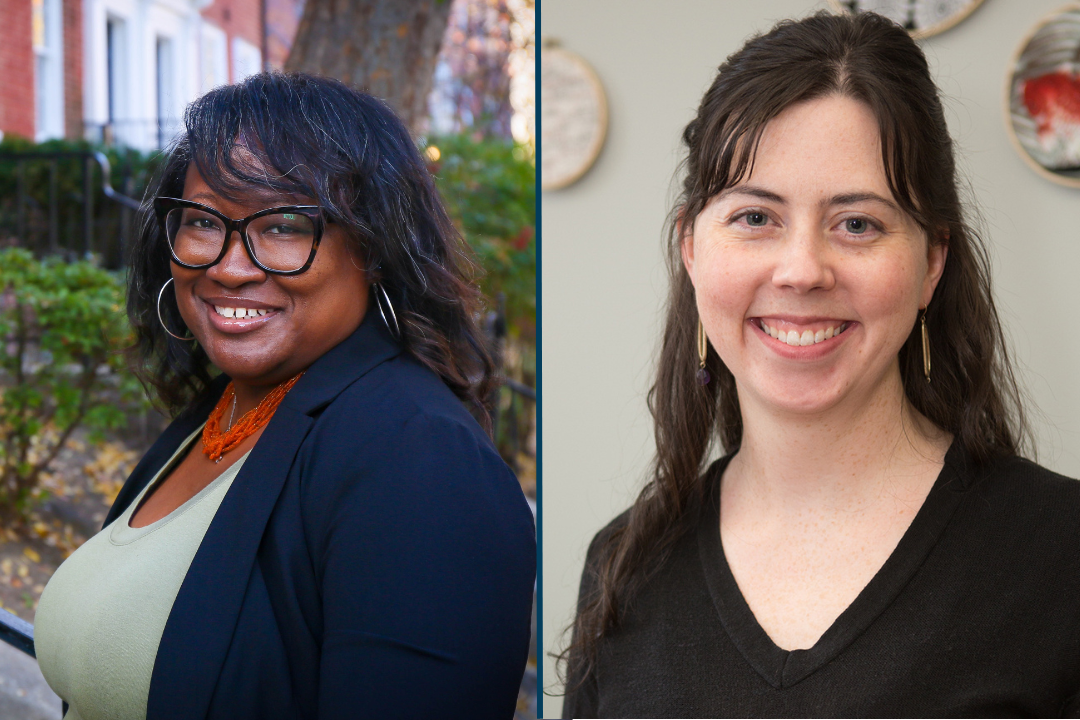Professors Jameta Barlow and Danika Myers were recognized for their excellence in teaching and mentoring at the Columbian College of Arts and Sciences celebrations this past weekend.
Barlow won the 2024 Columbian Prize for Teaching and Mentoring Advanced Undergraduate Students, awarded to a regular, full-time faculty member in CCAS who demonstrates excellence in teaching and mentoring undergraduate students. Teaching in the UWP, Women’s Leadership Program, Women’s, Gender, & Sexuality Studies, and the Milken School for Public Health, Professor Barlow emphasizes self-reflexivity, collaboration, and community-building, even including wellness check-ins, as part of her pedagogy, to help students navigate the challenges of the last three-plus years. Inspired by her scholarship’s “writehealing” community project, the use of self-reflexivity proves transformative, in that she asks her students, as she has community members, to reflect on their own past, practices, desires, and goals – but in a space of non-judgement.
Inspired by this approach, she founded the undergraduate Women’s, Intersectionality, Science and Health (WISH) Lab. Through the five years of the lab’s existence, she has helped nearly twenty undergraduate students revise their research and writing for publication and other scholarly projects. Some of these collaborations led to her recently co-edited collection, Writing Blackgirls' and Women's Health Science: Implications for Research and Praxis, published in
December.
Moreover, Professor Barlow has served as Faculty in Residence, as the faculty adviser for GW Ubuntu, as the undergraduate studies director for WGSS, as a speaker for organizations across the university including ODECE, UHP, Nashman, MSC, and the Cisneros Institute, and simply as a more informal adviser to many students of color.
Professor Myers has been awarded the Robert W. Kenny Prize for Innovation in Teaching of Introductory Courses. Her most recent UW 1020 class, “Poetry + Research,” invited students to use texts that combine research and poetry as a starting point to explore research, writing, and the production of knowledge. It sought to support first-year students in developing a sophisticated understanding of the infinite ways sources can be engaged or critiqued, subverted or celebrated, and how it feels to adopt such techniques in their own writing.
In other words, this poetry-themed course pushed students to see the many ways in which academic writing is creative and vice versa, rather than the polar opposites there are so often treated as. Professor Myers’ past course themes similarly challenged students to think about familiar genres but in new ways. For instance, “Making It!: Etsy Economics, Pinterest Aesthetics, and American Craftwork” utilized American craftwork and issues surrounding contemporary craft movements – what could be called “craftivism” – to teach student writing.


